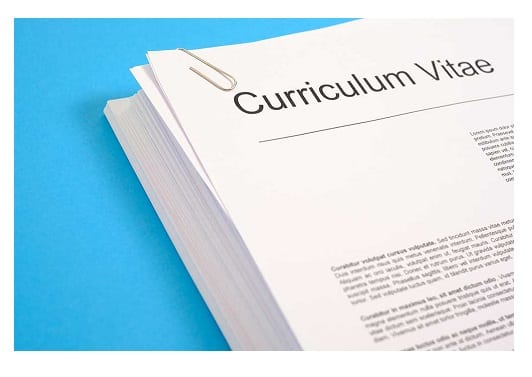Creating a high quality CV is not an easy task and one that requires ongoing maintenance to ensure that you can compete for the jobs you desire. Real Recruitment Solutions show us that there are many factors that can help to develop your CV to take it to the next level and a lot of these are much simpler than you would think. The main focus should be on the structure of your CV to make sure that is simple, concise and more importantly, readable; then you can begin to worry about the content in between.
The CV:
Personal Details:
Name (Bold)
Phone number, email and address
Including personal details is a very important part of a CV, many people forget to provide these and this can make it difficult for you to be contacted about potential jobs. It is not necessary to provide information such as gender, marital status or nationality- just keep it basic by putting your contact number, email and address.
Personal Profile
The next heading should be your personal profile, you can either present this in a bullet point format or as a paragraph. The personal profile is a key part of your CV and can make the difference when deciding between candidates, it’s a perfect place to sell yourself and showcase what you can bring to an organisation. What should a profile entail:
- Who are you? (What have you done throughout your career, what type of personality do you have)
- What can you offer an organisation? (Brief description of your expertise and key competencies)
- What are your future aspirations? (This can be good to prove that you are ambitious and want to continue to progress throughout your career)
Depending on which job you are applying for, you should alter and tweak your personal profile to ensure that you are displaying the right information to the employer. No employer wants to read about how you are looking for a job in a completely unrelated field as it will look like you are treating the organisation as a stepping stone.
Key Skills
This part of the CV is optional as your key skills can be highlighted throughout your personal profile and your work experience anyway. However, it can be beneficial for an employer to learn from the outset what you view as your key skills.
- The skills should be listed as bullet points to make it easy to read
- Do not overload with skills as it will extend the length of your CV and potentially distract from more important information later on.
- Aim to list competencies that link to the job description and will be of benefit to the organisation.
Work Experience
The most important part of a CV, the place to show what relevant experience you have for the positions you are applying for. The work experience provides the evidence to prove that everything you have stated prior is actually true and you have developed all of this throughout your career by performing responsibilities within roles.
Setting out your work experience so that it is easy to read, simple and effective is a big factor in whether your CV is worth reading in the eyes of the employer. There are only 4 relevant pieces of information in this section (Date of employment, Name of organisation, Job Role and Responsibilities) and this is how they should look:
Date of employment (always list in reverse chronological order as the most recent role, is the most relevant)
Name of organisation
Job Role
Responsibilities:
- Responsibilities should be listed as bullet points to make sure the CV is consistent throughout and let’s face it, no one wants to read large chunky paragraphs anymore- especially senior members of staff that simply don’t have the time.
- It’s important to only focus on the most relevant responsibilities and ones that will be suited the role you are applying for (It is therefore a must to continue to tailor your CV for each role).
- You can include achievements in the responsibilities section if you feel that it is worth addressing to an employer, using figures can be beneficial to support your points.
As you list your previous work experience, you should concentrate more on the relevant positions and put a greater amount of detail into these as this is where the employer is mainly looking to draw skills from. Positions that are older and less competency based should not take up large chunks of space on your CV as an employer does not want to read a 5/6 page CV.
Education
Education is the section of your CV in which you can highlight your relevant qualifications and professional training that will allow you to perform in a particular role. The format can be the same as work experience or it can be a bullet point list. If you have studied a degree, you can choose to explain in further detail about the modules that you have participated in throughout your time at University. It is important to include certifications, NVQ’s or any professional body training that will evidence your abilities to perform in a role.
Hobbies/Interests
Hobbies and interests is not a necessary section but can be included if you feel that you can find relatable interests that could improve your chances of being invited for interview. It is important not to be generic or list interests which do not offer the employer any benefit.
References are available on request.
For Further information please contact www.realrecruitmentsolutions.co.uk or 01202 530770
